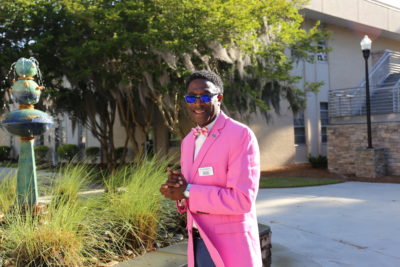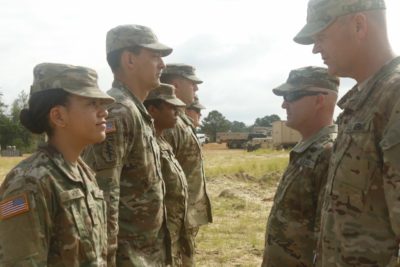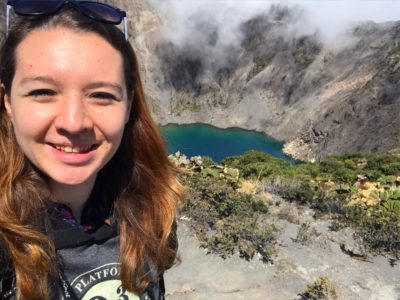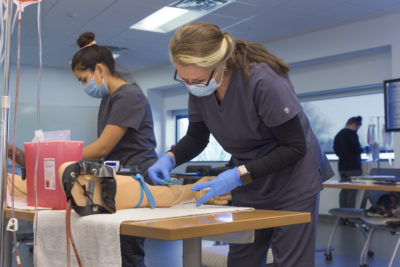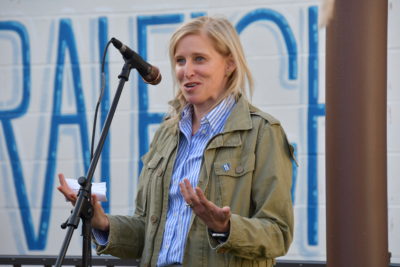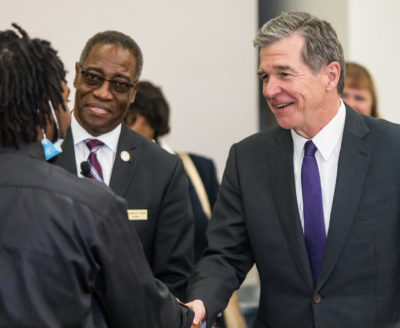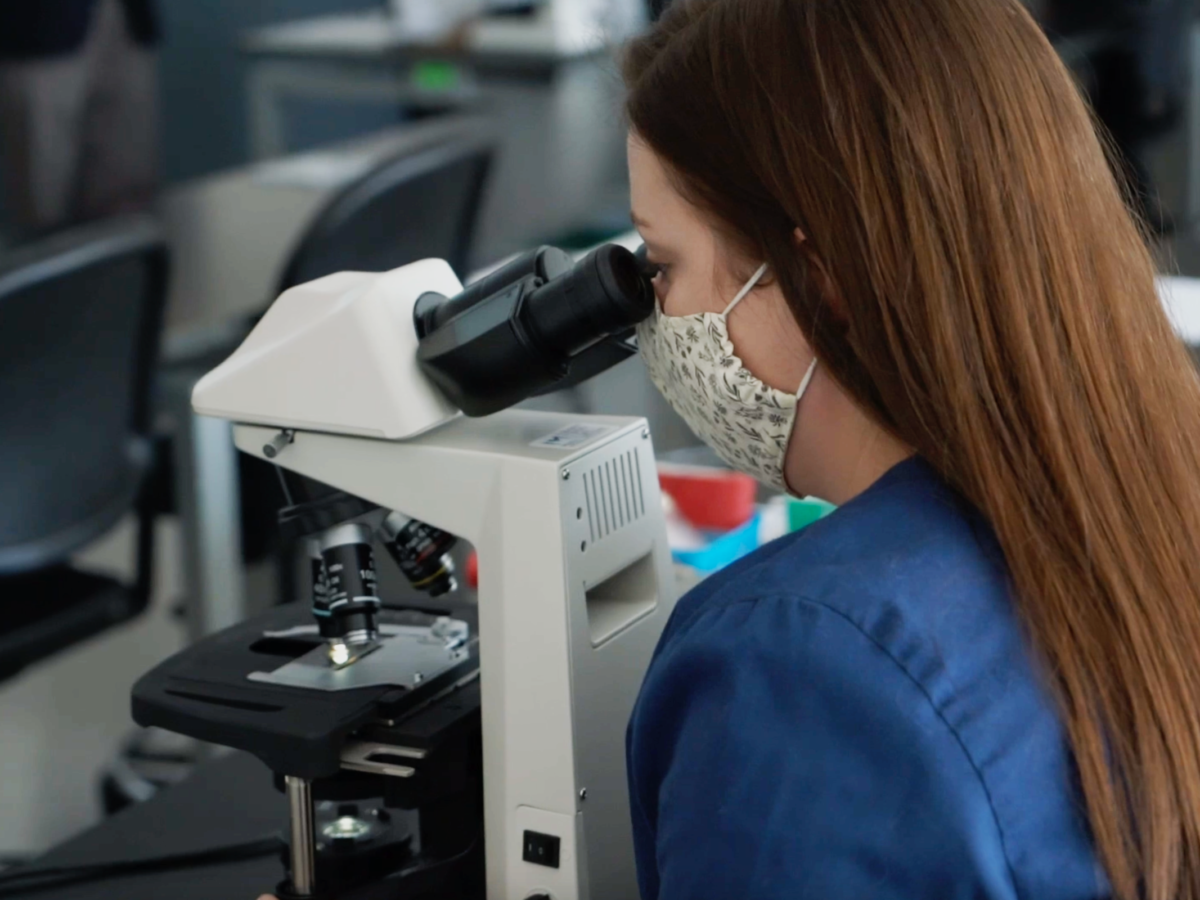
Share this story
- The @NCCommColleges celebrated National Community College Month this April. We asked our @Awake58NC readers for some of the most important community college stories — their own.
- “I love seeing the impact my work has on improving opportunities for students to obtain a quality education and change their lives for the better for themselves and future generations. I would not work anywhere else!”
|
|
North Carolina’s “Great 58” is the third largest community college system in the nation.
The system celebrated National Community College Month this April.
The North Carolina Community College System (NCCCS) serves more than 500,000 students each year, supports 319,763 jobs, and employs 36,422 people. And according to a new economic impact study, NCCCS contributes about $19.3 billion to the state’s economy each year.
“The Community College System is key to the recovery and growth of the state’s economy,” NCCCS President Thomas Stith said. “We are very pleased to participate in this national awareness month to showcase North Carolina’s crown jewel – the Community College System.”
Blue Ridge Community College President Laura Leatherwood shared her story in a perspective EdNC published earlier in April. Leatherwood wrote about some of the things Blue Ridge faculty, staff, students, and industry partners achieved over the past year.
“Our state’s 58 community colleges play a significant role in many communities and the region,” she wrote. “Every day, we work to help students to reach their unique goals and overcome challenges to academic and professional success. We also partner with area employers to assess and meet critical workforce needs… Our college’s story is one snapshot of many in our state’s overall educational attainment goal of ensuring that two million North Carolinians have a postsecondary degree or credential by 2030.”
Over the last month, EdNC asked our readers for some of the most important community college stories — their own. All answers are from email and survey responses from our readers, with minor edits for length and clarity.
What is your community college story?
“I am a product of the community college system, both academically and professionally. I completed my first two years of college at Coastal Carolina Community College before transferring to ECU to pursue my bachelor’s and master’s degrees in biology. A few years after completing my master’s degree, I began to teach as an adjunct at Edgecombe Community College for some ‘extra money.’ I really enjoyed teaching, and I started a full time biology teaching position at Edgecombe within a year. Sixteen years later, and I am finishing up my Doctorate and am the Vice President of Instruction at Edgecombe Community College.” —Bruce Panneton, Edgecombe Community College
“When my search for a college began, I never imagined attending Cape Fear Community College would be part of my story. Truth be told, I had barely even heard of Wilmington, N.C. Yet the reasons behind my relocation to Wilmington, the background of my journey to community college, and why I am so excited to be a part of Cape Fear, are exactly why I have thrived in the community college environment!
Growing up, I always saw myself attending a four-year university straight out of high school. Truthfully, I never really gave a thought to community college and its potential benefits. So, going into my senior year, four-year schools were the only things on my mind. I lived in Alabama at the time, and just heard that my family would be transitioning to Wilmington, N.C. Because of this, my college search switched gears to schools in North Carolina. The plan was to go to a North Carolina state school, but Cape Fear was hanging out in the back of my mind. I decided to stop ignoring it and apply —I got in and the rest is history!
I started studying for my associate in arts degree and now plan to transfer to a four-year university after my time at Cape Fear. The benefits of community college are too good to pass up. Since attending CFCC, I have been a part of the student ambassador program, a team of students who represent the college. I have been able to volunteer at several student activities around campus, lead student tours for future SeaDevils, and was even able to conduct an on-camera interview with the president of Cape Fear, President Jim Morton! I am beyond grateful for the time I have had at CFCC thus far, and I cannot wait for next year!” — Shelby Lloyd, Cape Fear Community College

“I have been working at WTCC since 1988. I have seen the Southern Wake campus expand to serve all of Wake County. While I miss the days of knowing every employee on campus, I am proud this college is more accessible to all members of the community. Our campus once focused on technical skills and still trains many auto mechanics, barbers, beauticians, electricians, plumbers, and welders. There are a multitude of certifications, badges, associate degrees with a solid college transfer program.” — Deborah Maness, Wake Technical Community College
“I was very unsure about going to community college because I was scared I was going to miss out on the experiences of a four-year university. Going to a community college was the best decision I feel I have ever made. I have met my best friends, and figured out my whole life career at the age of 20 in a two-year span. The instructors and staff at community colleges are amazing — they are very personable and always check and make sure you are doing well, and if there is anything they can do to help they will.” — Taylor Frye, Cape Fear
“I am a second-generation community college professor of communication. I spent my first 10 years teaching as a full-time instructor at Northern Virginia Community College, the institution my mother retired from. When I lived briefly in Michigan, I taught as an adjunct instructor at Lansing Community College, and since returning to the east coast, I’ve been full-time at Wake Tech since 2018. It is my great privilege to help students understand the powerful role communication can play in their lives and to help them increase their confidence as speakers. Community college students face many challenges, and it is my hope that when they leave my class, they understand that they have a voice and that they feel empowered to use it.” — Kate Jones, Wake Tech
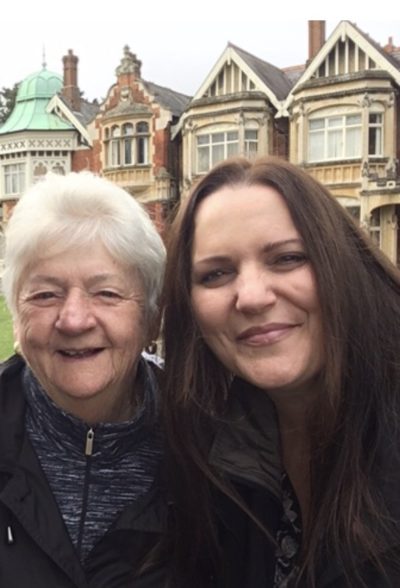
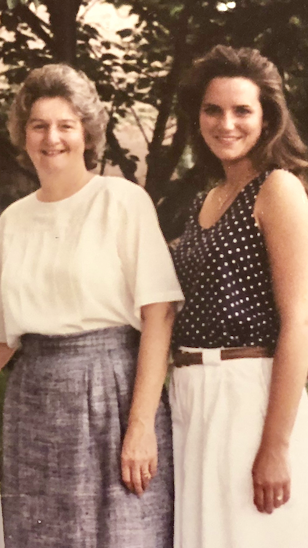
“Like many of our students, I am a first-generation college graduate, and it was a lengthy process to get there. My first college experience was at an out-of-state four-year Christian college for secretarial science. I loved it! However, I had health issues arise and had to leave for surgery mid-term. They worked with me the second semester to finish all of my credits. Instead of going back to finish, I chose to get married at 19 – young love! I then went to a business college for an accounting certificate and went to work.
After years as a secretary, I knew there had to be more out there for me. I found another Christian college offering a degree in management through an adult program for learners with at least 25 credit hours. As the last semester arrived, they discovered I was three credit hours shy of graduating. They had no options to help me and someone suggested I reach out to my local community college. I was able to get the class I needed and graduate with my class. As I came off the stage with my degree – 10 years after my high school graduation – and walked down the aisle, I saw my grandmother with a big smile on her face (she had only gone through 8th grade). She died later that year.
Three years later, I had the opportunity to work for Forsyth Technical Community College, the very college that had helped me obtain my bachelor’s degree. I learned so much about why community colleges were important and the impact they can make. While at Forsyth Tech, I had the opportunity to continue my professional development and was able to work my way from Administrative Assistant to the Vice President to Grants Coordinator as the first person in that position. During this same period, my mother went back to school in West Tennessee at Dyersburg State (a community college) at the age of 55, obtained her degree in early childhood development, and served as a student ambassador.
I was later recruited to Rowan-Cabarrus Community College as Grants Director to build their first grant development program. After deciding to work on my master’s degree, I found the right fit for me in the MALS program at UNC-Greensboro. It offered me the opportunity to take classes that I could enjoy in a manner that worked with my full-time work schedule. I had a two-and-a-half-year detour to work at Metropolitan Community College in Kansas City, MO, and completed my master’s degree while I was there – 20 years after completing my bachelor’s. However, there is no place like home, and I decided I needed to be back in North Carolina. I started my current position at Johnston Community College in 2017 and hope to be here until I retire in 2027 or later.
When I have a stressful day – and there have been many managing the HEERF funds and seeking new grants during the pandemic – I remember the struggles our students have and why I do the work I do. I love seeing the impact my work has on improving opportunities for students to obtain a quality education and change their lives for the better for themselves and future generations. I would not work anywhere else!” — Daphne Lewis, Johnston Community College
What does the idea of community college represent for you, your family, and your community?
“It represents our local community offering amazing education and much needed trade programs. I’m thankful to have Coastal Carolina Community College in Jacksonville, N.C.” — Arlana Mobley, Coastal Carolina Community College
“For me, community college is part of ‘my DNA.’ Community colleges have been an important part of my life for over 20 years. I was a very good high school student, but I was also a first generation college student. I had NO IDEA how college ‘worked.’ I knew I wanted to go to college but had no idea how to do it. My local community college helped me start. As a community college professional, I see the immediate and long-term value that community colleges provide for their service area students and community. Community colleges help students earn the credentials they need to better support themselves and their families.” — Bruce Panneton, Edgecombe Community College
“For me and my family, community college means a new opportunity and a chance to grow in both my education and in my personal life. Since I chose CFCC as my school home, the benefits have been endless. I am beyond grateful for all of the teachers and staff members who have poured into me and who have spoken positivity over my educational career. CFCC has brought so much life to Wilmington as a whole. The school does a great job of merging the school culture with the city’s. From community activities, to reaching out to potential future students who are still in high school, Wilmington benefits immensely from having a college that cares just as much about community improvement as it does student improvement.” — Shelby Lloyd, Cape Fear Community College
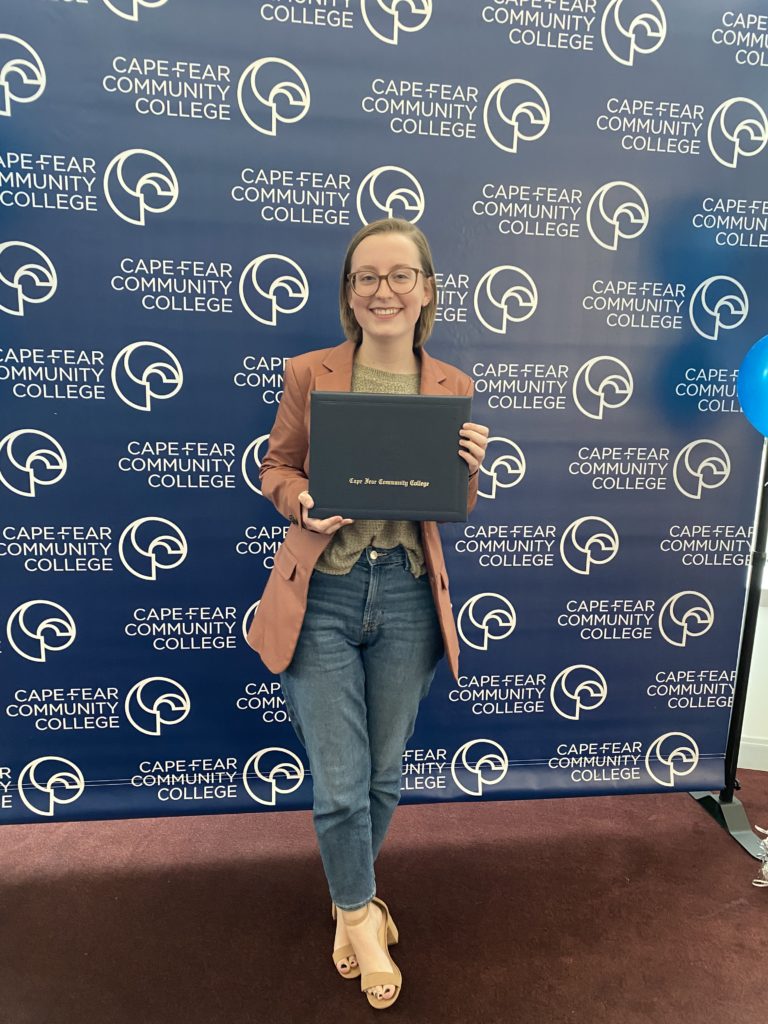
“I transferred to Elizabeth City State University after my son was in kindergarten, where I got my degree in elementary education, and then years later went back to get my master’s. I am currently retired and working at College of the Albemarle part time. I’ve really enjoyed working here at College of The Albemarle, my alma mater. I started out as a communication specialist where I answered the phone, served walk-in clients, took notes, and did some filing. Then I started editing the local COA – Dare Guide for our students in Dare County. I created documents and flyers for transfer sessions, and I am currently creating assignments, such as message boards, questionnaires, quizzes, in a Moodle for new advisors.
It’s surprising how much I’ve been able to learn and do since I started here. My immediate supervisor gives me challenging assignments, guides me through them or gives me the resource personnel to show me what I need to do. I look forward to coming to work every day because there is so much variety in my work and I am never bored. It’s refreshing when I walk next door in our tech building (our current campus) to see students sitting around on the couches, reading, talking, sharing, warming up the food in the microwave in the little kitchenette there, and just having an atmosphere of growing up and learning. I love the fact that we are transitioning children into adults!” — Calvina Russell, College of the Albemarle
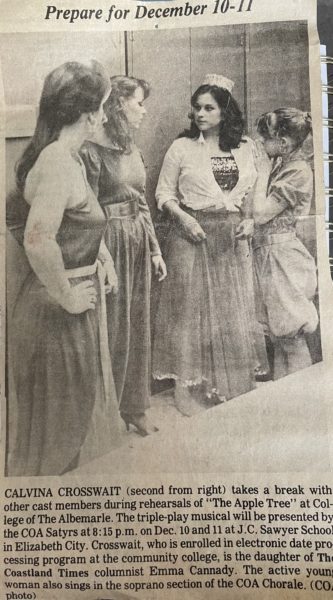

Left: Calvina Russell, pictured here third from left. “I found the newspaper clipping after I was hired. I went to College of the Albemarle when I graduated from Manteo High School in 1982. The theatrical and music departments were ‘instrumental’ in bringing me out of my shell. It was the first time I’d ever lived away from home. Even though it was an hour and a half away from home, it seemed like miles and miles because I was terrified to be on my own in Elizabeth City.” Right: Russell wearing a sweatshirt she made because she didn’t have any COA garb for a spirit day the college had a few months ago. “Sometimes you just make your own,” she said.
“The N.C. Community College System offers career choices for jobs in the local community. I feel proud helping members of my community improve themselves academically to fulfill personal goals and local job needs.
The community college also provided my career in teaching. I began tutoring in the Individualized Learning Center, taught college reading skills to developmental students, learned to teach proficiently online through an internal EPIC certification, and now prepare students for college writing in English 111. I enjoy seeing my students employed in Wake County.” — Deborah Maness, Wake Tech
“Community college was a perfect fit for me. I never liked school when I was younger and honestly wasn’t sure if I wanted to go to college. When I heard that I could go to Cape Fear Community College for two years and then decide if I wanted to continue my education at a university, I was all in. Getting my degree in two years was awesome and has set me up for a lot of great opportunities in the long run.” — Taylor Frye, Cape Fear Community College
“I have worked at Fayetteville Technical Community College since 2018, and one of the best success stories I have experienced is running into a former student at the local Walmart. The former student was in one of my developmental English courses several years earlier, and I asked what she was doing since finishing up at FTCC. She shared that she moved onto Fayetteville State University and earned her bachelor’s degree. That was a ‘wow’ moment, but then she shared that she had been accepted into a master’s program at Fayetteville State University and would be starting that program the next semester. My former student’s story, and thousands like her’s, show how the community college serves an integral role in helping students get to where they are meant to be. We are helping students where they are in order to get them to where they want to be.” — Sarah Bruton, Fayetteville Technical Community College
“I spent my childhood listening to my mother tell stories about her community college students who had come from all over the world to better their lives, many of them fleeing from unimaginable circumstances. I visited her classroom often over the years, where her students told me what her kindness and support meant to them, often with tears in their eyes. When I had the opportunity to attend graduate school, I did so, knowing that I wanted to continue my family’s legacy of serving community college students.
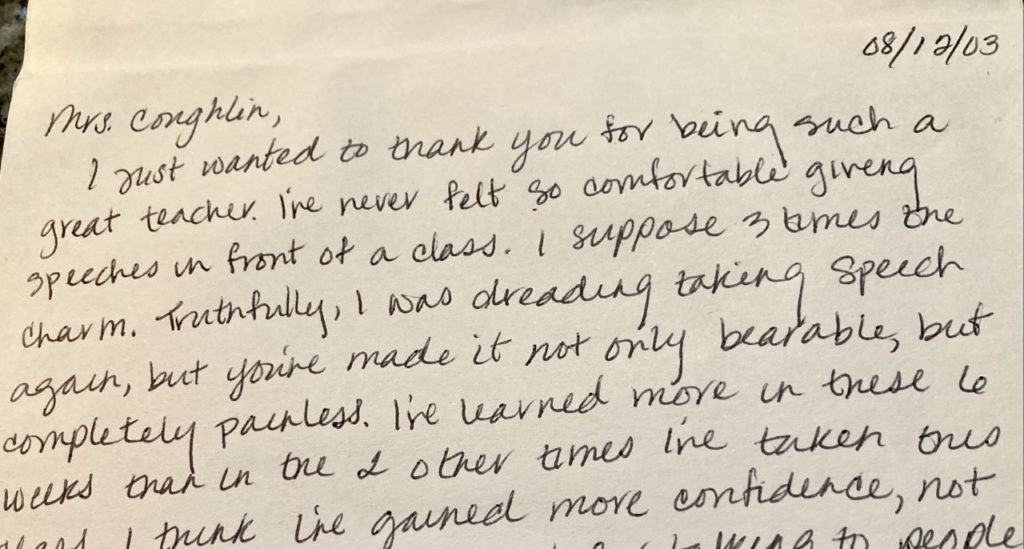
The Charles E. Coughlin Memorial Scholarship, a $1,500 scholarship, was set up at Northern Virginia Community College (NOVA) in my father’s name when he passed in 2010. Though he never taught at the community college, he was a big supporter of community college education. In his job for the federal government, he helped set up ‘credit for prior learning’ for government workers, through NOVA.
I feel fortunate to have grown up understanding the unique opportunity we have, as community college faculty and staff, to provide a space for students from all walks of life to feel respected and encouraged. And like my mom, I am continuously inspired by our students’ grit, determination, and optimism.” — Kate Jones, Wake Tech
What’s your community college story? You can share it with us at hmcclellan@ednc.org.



